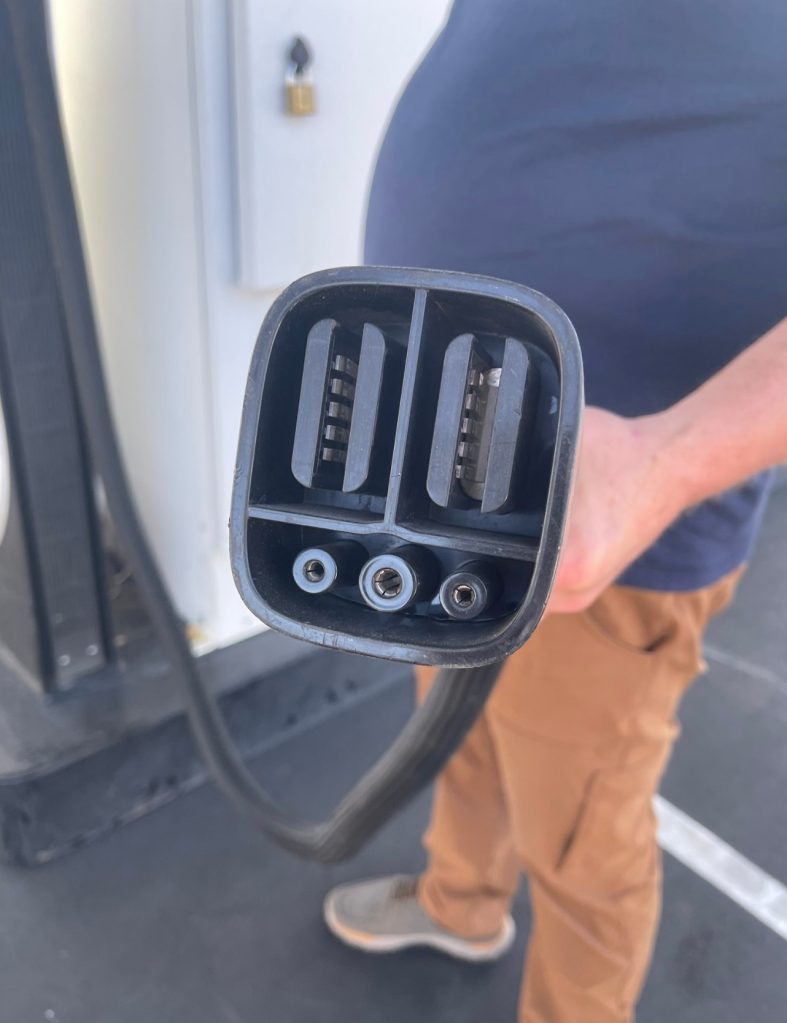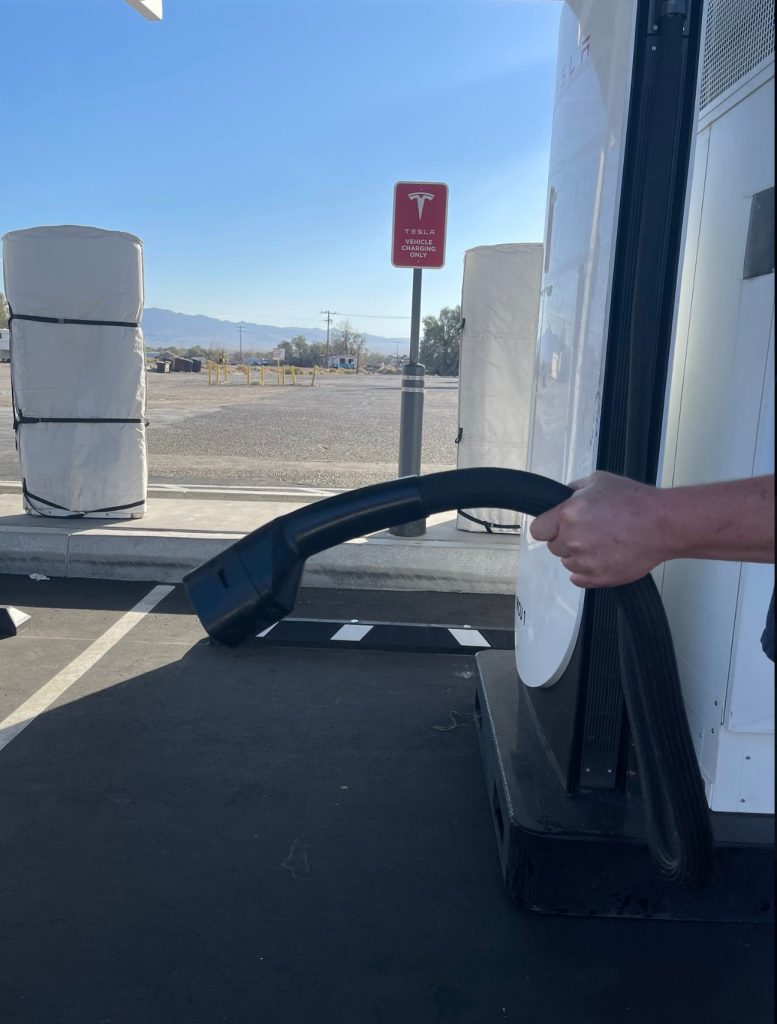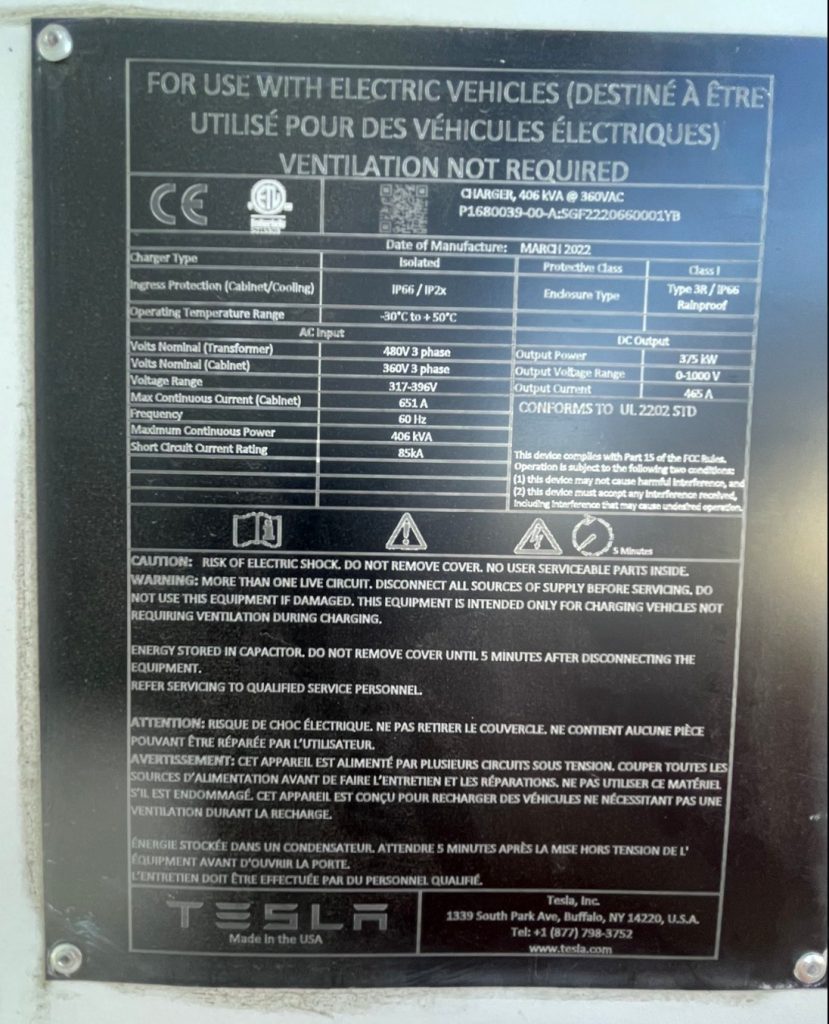
We get a closer look at Tesla’s Megacharger and its massive charge connector for the Tesla Semi electric truck as the automaker deploys a mobile station.
While Tesla has gotten a lot of attention by opening up its charging connector, the NACS, there’s actually another charging connector that it is deploying – the Megacharger.
Tesla started production of the Tesla Semi late last year, but it’s only low-level production for a few customers and trucks to be used in Tesla’s own operations.
Because the Tesla Semi is only being used at a few locations, and mainly Tesla’s, there are not a lot of public charging stations for the electric semi trucks.
But Tesla has now deployed a mobile Megacharger at its Supercharger station in Baker, California between Los Angeles and Las Vegas.
Twitter user RodneyaKent spotted the Tesla Megacharger and shared a few pictures of it:
The Megacharger’s charge connector and charging cable are absolutely massive:


The Megacharger has been rumored to have a capacity of 750 to 1,000 kW. CEO Elon Musk has previously said it would enable to add 400 miles to the Tesla Semi in 30 minutes.
Now the electrical ratings on this station are suggesting a much lower charging capacity, but that’s likely because it is a mobile charging station:

Tesla is likely going to be deploying more higher power Megacharger stations at permanent locations as it starts delivering more Tesla Semi trucks.
However, that might have to wait until Tesla shifts production of the electric truck to Gigafactory Nevada.
Author: Fred Lambert
Source: Electrek




Top comment by Lewis
Liked by 14 people
The most important issue for charging semis is the cost of the electricity. Will it be at retail or wholesale rates?
Here are some numbers that are a few months out of date but still show the real issue. The fuel cost to run a diesel semi for one million miles is $700,000. Running a Tesla semi for one million miles costs $200,000 at wholesale electricity rates or $1,000,000 at retail rates. The difference in the cost of powering it is MUCH greater than the purchase price of the semi.
For Pepsi, who “fuels” its Tesla semis at its own locations paying wholesale electricity rates, experimenting with Tesla clearly makes sense.
Given those numbers, a Tesla semi makes sense for owner/operators if and only if they can charge a Tesla semi at wholesale rates for electricity. Obviously, there are other costs and concerns. An electric should be easier to maintain than a diesel because it is a simpler design with fewer moving parts. A Tesla or other electric semi is a risk simply because it is new compared to very mature and understood diesel trucks. Its hard to imagine any other issue being as important as the factor of 5 difference in cost to power an electric semi.
View all comments